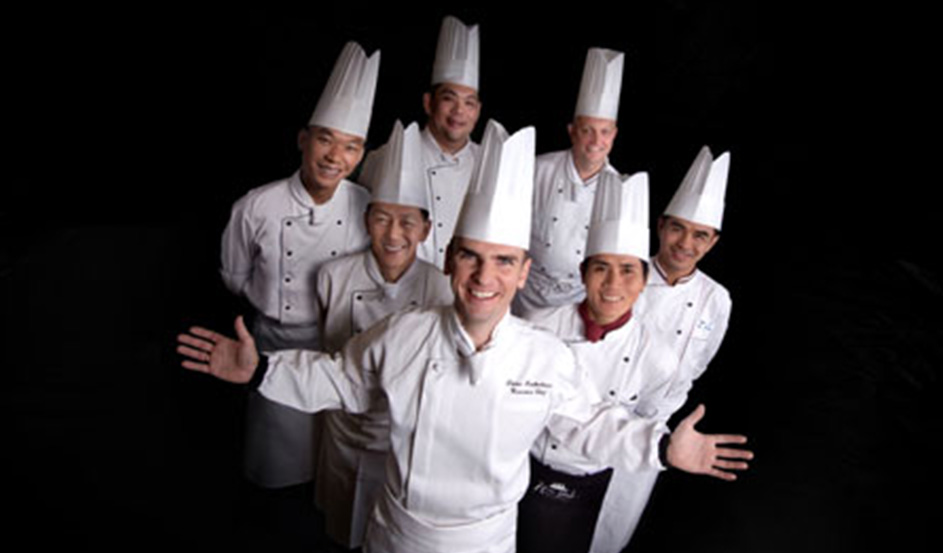
CAPITALIZING ON HUMAN CAPITAL
Why the restaurant industry is missing out on a key ingredient!
The restaurant business is no spring chicken, it has a history which dates back to the 1700s and a track record which proves that the business model is in general a viable one. The restaurant industry has evolved over decades, creating a vast array of dining categories, ranging from fast food, casual dining to fine dining, the upper end of more niche-tailored varieties. It’s been stirred up by a generation of more demanding, more discerning ‘foodies’ with a greater refinement and appreciation for what the food experience should be about. We’ve also witnessed a huge growth in the types of cuisines brought to us by talented chefs, relying on creativity as much as skill, who have recognised the gaps in the market and responded by modernising and updating dishes, fusing different cuisines together and making use of our understanding of food science to introduce diners to new textures and sensations for their more refined palate.
Looking at it in these terms it seems we have come a long way, however there are aspects of the industry which have failed miserably to develop where other younger industries have excelled. The area I am focusing on here is fine dining and its lack of development towards harvesting Human Capital. The restaurant business is labour intensive, both in the front and back of house. So why is this such a neglected area?
Much of this stems back to the origins of the fine dining restaurant business coming from domestic help. In a nutshell; fine dining’s origins lie in the homes of the wealthy European houses from around the 1700’s onwards, post French revolution many top chefs who had honed their skills, and funded all their culinary endeavours in these houses, were left high and dry, trying to find a way to make a living with a skill that had no real value to anyone other than the rich. The restaurant business developed and began to really flourish. To bring prestige to the trade and develop it into a ‘respected’ profession Chef guilds where established and culinary schools opened. Escoffier (1846 – 1935) introduced the concept of splitting kitchens into various sections to improve the flow of work and encourage labour specialisation. He also introduced the brigade system, creating different positions and ranks in the kitchen, all of this was aimed at creating a more formal structure and re-enforcing the idea of making cheffing a respected profession.
Despite the developments made, it would be a distortion of the truth to say that a kitchen is now a professional business environment to work in. Employers continue to provide unattractive working conditions, in an era all about the ‘work life balance’. The kitchen remains a volatile environment with a ‘school yard’ mentality, where bullying, vulgarity and pranks are a part of everyday working life in many cases. It is still common practice for senior ranks to use an autocratic leadership approach, to coerce their staff and rule by fear. A hierarchical system is still very much in place with lower ranking chefs referring to their seniors by the title ‘chef’ (unlike in any other organisation other than the military). Staff turnover is high (in general the average length of tenure for a kitchen employee within a kitchen is one year to two). This contributes towards creating an unstable environment, low morale, increased recruitment and training costs, disruptions in consistency and, more importantly, a loss of talent and knowledge, as employees defect to the competition, which raises even more concerns.
It seems that the movement to develop the status of being a chef seemed to come to a stand still at some point. Now chefs are respected for their celebrity status rather than professionalism. You see many celebrity chefs hailed as heroes by their followers yet considered tyrants by their peers.
So where is the key to future development? What are practical solutions for these issues which will enhance the creative process and improve the overall standards? From my personal experience both outside and inside the kitchen the way forward lies in the investment in human capital and improving staff retention. As restaurants run on tight margins the solutions must be financially viable and easy to implement. Time constraints will also apply as it is imperative that the initiatives implemented do not disrupt the day to day operations.
The following are initiatives which meet these requirements and are aimed at further developing the kitchen and the professional status of being a chef in today’s world.
· Create a Culture of Shared Values: First of all we must begin by developing a solid foundation and this comes in the form of establishing a professional business mind set in the kitchen where chefs are encouraged to see value in their own job. The idea is to create a culture in which vulgar language is unexceptable (as it creates tension, and is unproductive), respect among all ranks is expected and knowledge sharing is formalised by creating a knowledge sharing database, forums (both on and offline) where staff can share ideas and recipes as well as post articles which they have come across and recommend books and restaurants to one another.
· Devise a 360 Degree Orientation Programme: Training chef’s to adapt to the restaurants style is of great importance. A week long induction program in which new comers are trained in the head chef’s culinary style, cooking methods and plating, followed by training related to understand the restaurant’s food costs and methods of managing inventory and wastage. Section head’s (Chef De Partie) must be trained in the following areas; time management, coaching and mentoring skills, communication and management. Anyone who has worked in a multicultural environment will also see the benefits of introducing a cross cultural training program to improve communication, understanding and tolerance between staff members.
· Empower Your Team: Following on from the previous point; developing systems in which section chefs (Chef De Partie) and sous chefs are responsible for the career development of the staff they have in their section. Providing these chefs with tangible tasks which ensure they are training their staff and role modelling the desired behaviour. As most of the training will be practical it is important that the head chef plays an active role in assessing the development and provides them with constructive feedback.
· Set Up Efficient Documentation Procedures: Improve documentation, by this I mean keeping accurate records and checklists for each section. The best example of this is the systems I currently use for my fridge and freezer storage. I use an inventory sheet which is recorded once a week and then updated as and when items are added and removed providing me with a running, up-to-date inventory of all the stock I have at all times. This allows me to make a more informed decision when ordering. In addition I keep a record of sales by recording key components of my mise en place before and after each service (this also serves as a great method of ensuring I am fully stocked for the service to come). Overtime this raw data is entered into a spreadsheet and turned into meaningful information which allows me to track the activity on my section, best sellers, slow moving items etc. once again this translated into more informed decisions when ordering stock and provides a good idea of wastage and guidance for developing new menu items.
· Create a Culture of Team Effectiveness: Developing the team by using activities and games. As structured as kitchens are from an authoritarian perspective they do have a casual attitude which lends itself to alot of personal relationships developing (both positive and negative). The idea of actively developing a team which works well together as a close nit unit is imperative to the overall development of the kitchen and to encouraging longer tenures. The best example of this that I have come across was Genghis Khans hunting games. During the seasons in which his army was not at war, Genghis Khan would create large scale hunting games which would last for weeks. The army would be split into teams all hunting a target through different terrains until they met at a central point. The idea was that these games improved the skills they needed to fight well in war, including tracking, survival and team work while allowing them to engage in an activity which they found enjoyable. Why not set tasks for the kitchen team to work together on developing dishes in which the winning dish is put on the menu or create challenges which require them to use practice their cheffing skills. Ultimately the goal is to bring them closer as a team while practicing the skills that will improve their work.
· Set Up Career Development and Training Programmes: Currently the majority of chefs will either go to a culinary college or join a restaurant as an apprentice and work their way up. Their progression is dependent on three components: 1. Their technical ability, 2. The length of period they have been in their current position and 3. Opportunities within the kitchen as and when they arise. Unfortunately there are many cases in which this system results in good chefs being promoted into bad managers. It’s somewhat ironic that the skills that make a particular employees stand out and thus get promoted for, are often the skills that hinder them when they get promoted to management positions. Rising through the ranks in a kitchen is more of a sporadic, natural occurrence as opposed to a planned move in which the chef is coached and trained to develop management skills (ie; team building, delegation, planning, HR utilisation etc) in order to take up a senior position successfully. Establishing career and training plans for your staff will improve staff retention and ensure that your employees are effectively placed in their positions. In doing so you retain the knowledge and talent which you have invested in, the longer these team members stay with you, the greater your return on that investment.
In today’s kitchen we are far away from an idealistic silicon valley ‘utopian’ work environment and this may not even be a feasible goal for this industry however that is no reason to stick with the status quo. These are just a few easy to implement ideas to spur on an evolution within the kitchen rather than a revolution and to improve the kitchen from all perspectives. As with all businesses, restaurants will benefit from having better trained, more focused and satisfied employees.
Just like the icing on the cake – it’s a top down process! The key to the success of these ideas will always lie with the Management Team. The motivation for success and development must come from the head chef/ restaurant manager and trickle down to all team members. As a chef de partie, you are a supervisor, as a sous chef you are a manager, as a head chef you must be a leader.

